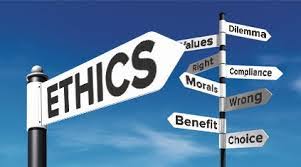The Importance of a Separate Board Compliance Committee

Watching the compliance industry and advocating for the compliance profession can be frustrating. Corporate boards and senior management know the importance of committing to a culture of compliance. To accomplish that task requires focus, determination and commitment.
Words are words but actions are tangible. In the end, corporate boards and senior management have to act and commit to promote the importance of compliance. As I have argued on numerous occasions, a company’s most valuable intangible asset is its ethical culture.
Corporate boards still face uphill challenges in embracing corporate ethics and compliance. Most corporate boards lack the expertise, time and commitment to conduct meaningful oversight of a compliance program.
Most corporate boards do not have anyone on the board who possess compliance expertise on the board. Corporate boards are stacked with financial and business experts but omit a key representative – a board member who understands the value of compliance and how to promote compliance and ethics to advance sustainable growth and performance.

Even more frustrating is the fact that ethics and compliance is lumped into the responsibilities of the corporate audit committee. In the wake of Sarbanes-Oxley, we have seen the rise of internal auditors and the importance of Audit Committee oversight. But that does not necessarily extend to compliance programs – the supposed rationale is that compliance is an integral aspect of a company’s internal controls. I agree.
However, corporate ethics and compliance is more than just internal controls – ethics and compliance fuels sustainable growth and protects the company’s culture, employee performance, and achievement of financial goals over the long term. Finance expertise is a perfect fit with internal auditors and preparation and filing of financial reports. Financial focus, however, is only a small part of a company’s ethics and compliance program.
To address this issue, corporate boards need to expand their committee charters to include a specific ethics and compliance committee or even a broader risk management committee. Either solution would work and bring risk management and compliance expertise to the board oversight process.
A compliance and ethics committee should be chaired by a board member who has compliance expertise. A three-member committee would be an effective oversight mechanism and help promote the implementation of an effective ethics and compliance program.

Corporate boards are, by nature, reluctant to innovate. Resistance to change in the end could be the undoing of a corporate culture and result in scandal or at a minimum a weak corporate culture. Such a result has bottom-line consequences. A weak corporate culture can reduce financial success and corporate innovation.
Change is coming to corporate boards because the old rules of defense and resistance are easy targets for shareholder activists, corporate raiders and employee challenge. As millennials increase their role and control over corporate cultures, millennials are demanding new and innovative approaches to corporate governance and objectives. A company’s culture is vital to this wave seeking change. A separate board committee dedicated to compliance is an important first step in this direction.
















Thanks Mike,
Creation of a committee, either compliance or risk, which is chaired by a compliance expert is a important first step towards boards meeting their duty of care. Its also a great strategic move for companies that wish to operate with the speed of trust.